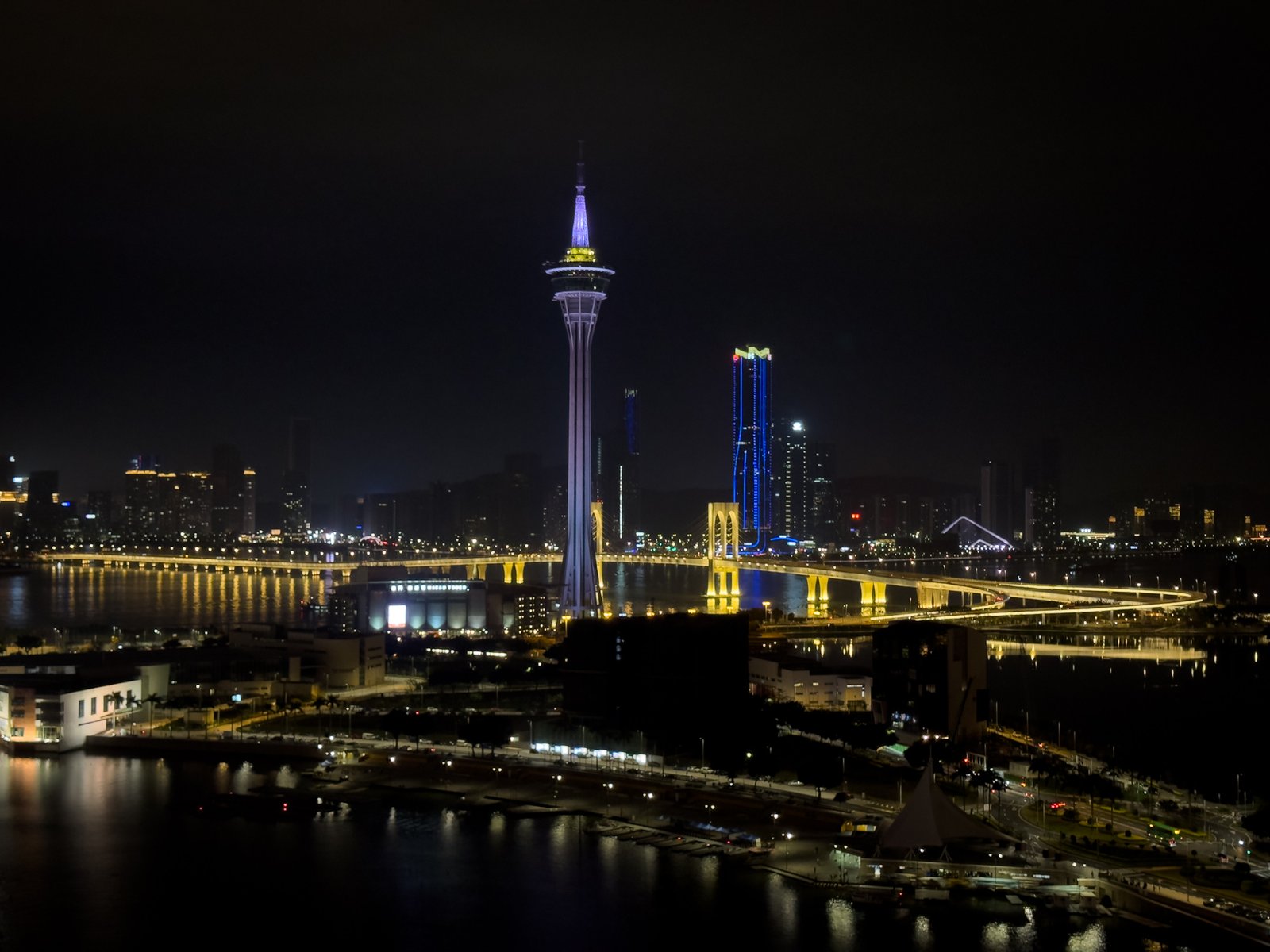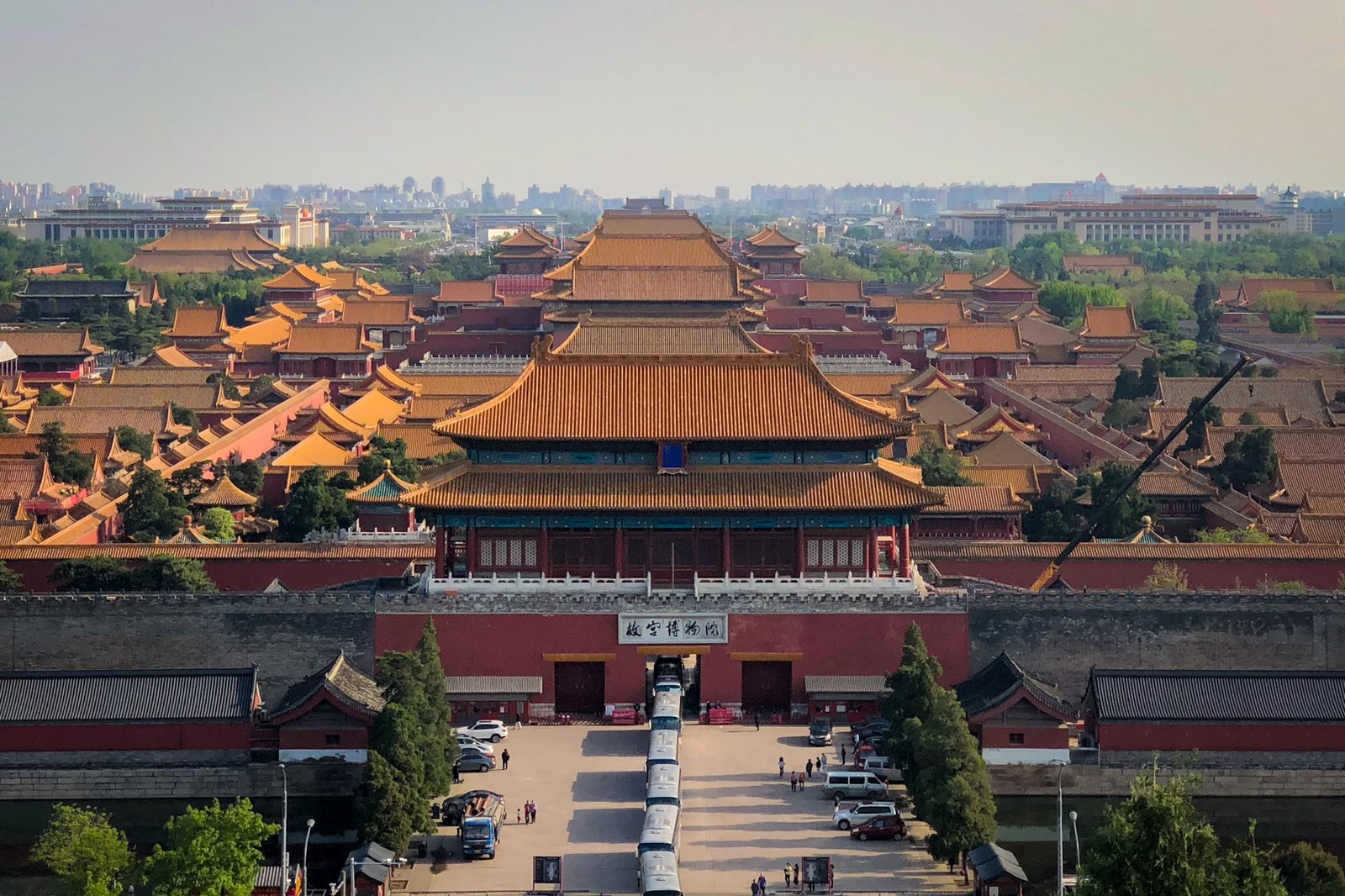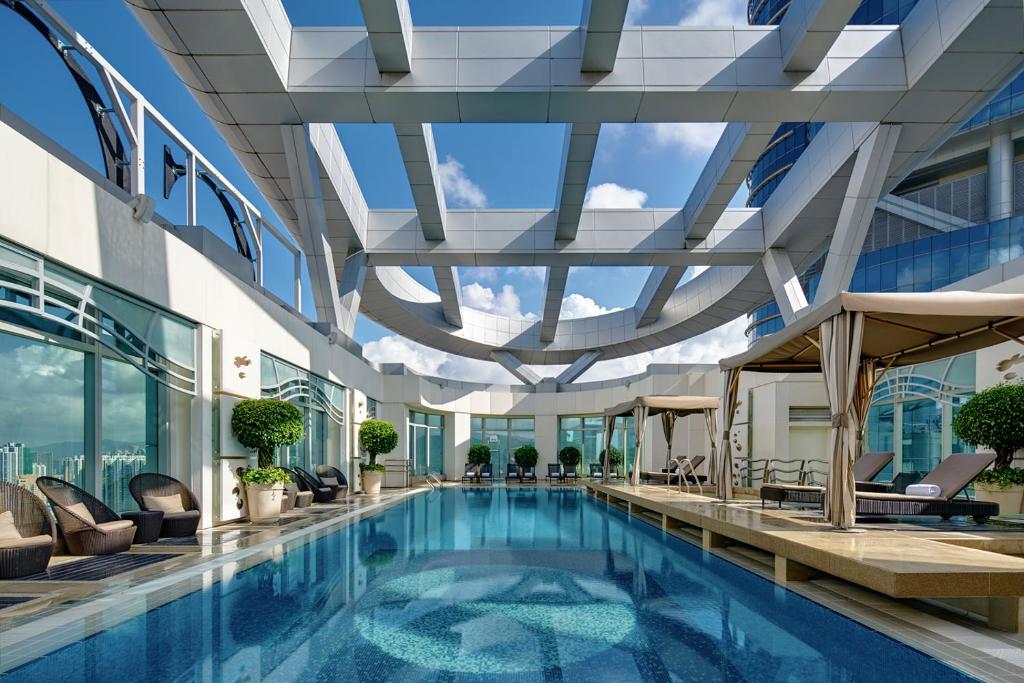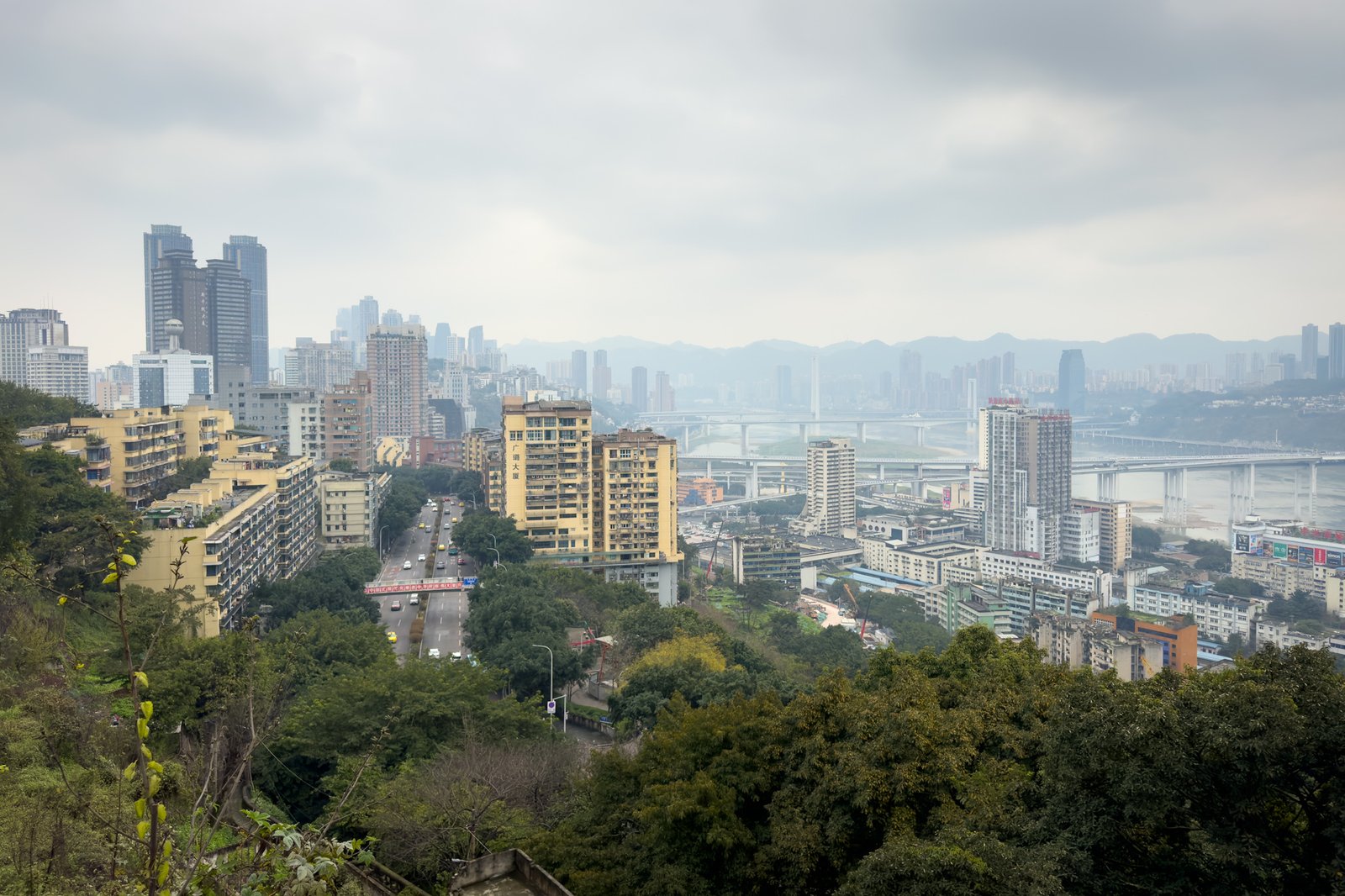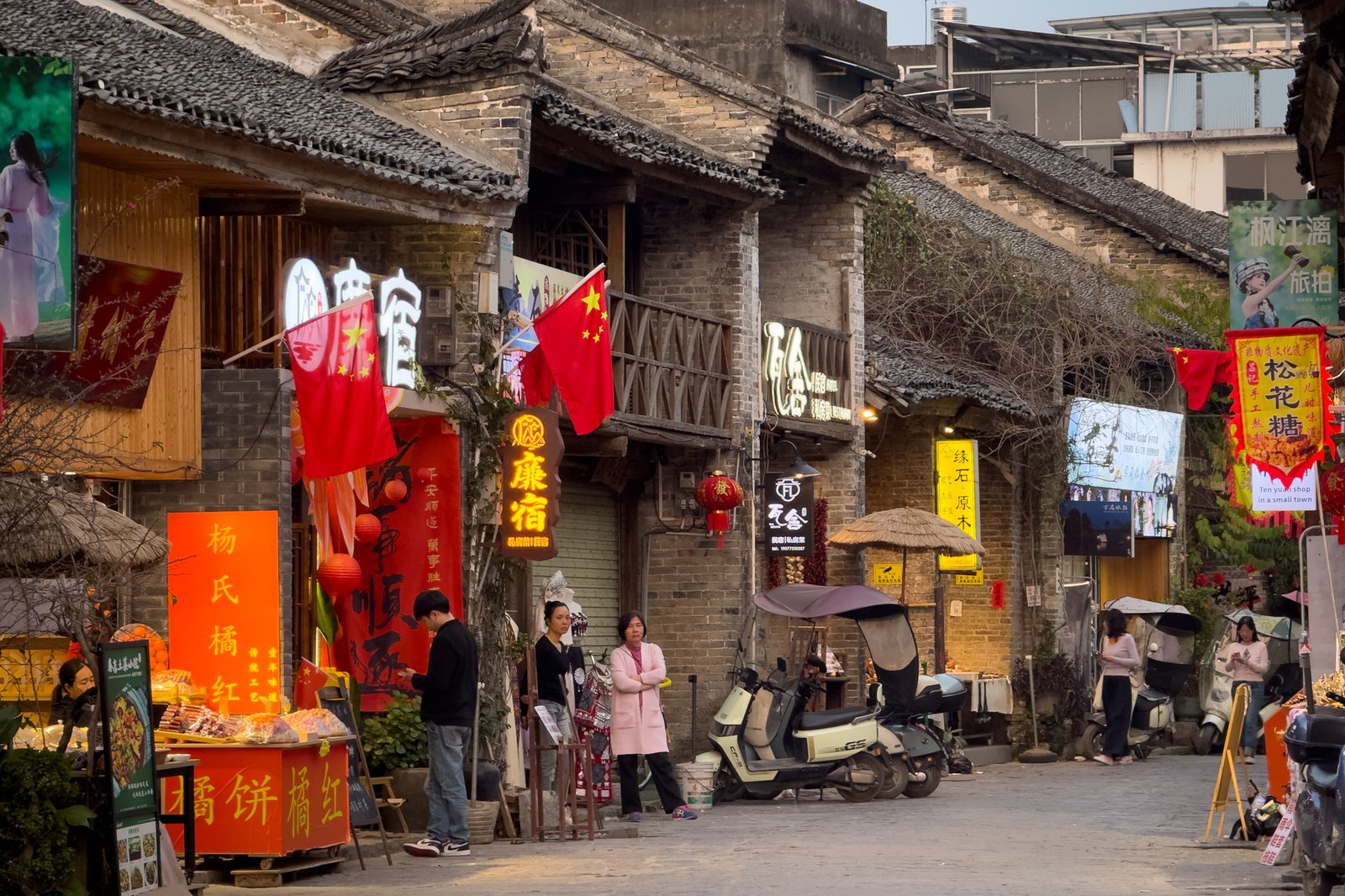Choosing where to stay in Hong Kong can be tricky. The city is massive, its neighborhoods are all very different, and the prices… well, they can be a shock. But don’t worry! We’ll help you find the right hotel for you, whether it’s a budget stay or a luxury hotel overlooking Victoria Harbour.
In this guide, we recommend three strategic areas—Causeway Bay, Mong Kok, and Tsim Sha Tsui—and for each, we’ve picked a budget, mid-range, and luxury hotel. All so you can find the best option for your budget!
Table of Contents
Causeway Bay: Where Shopping Never Ends
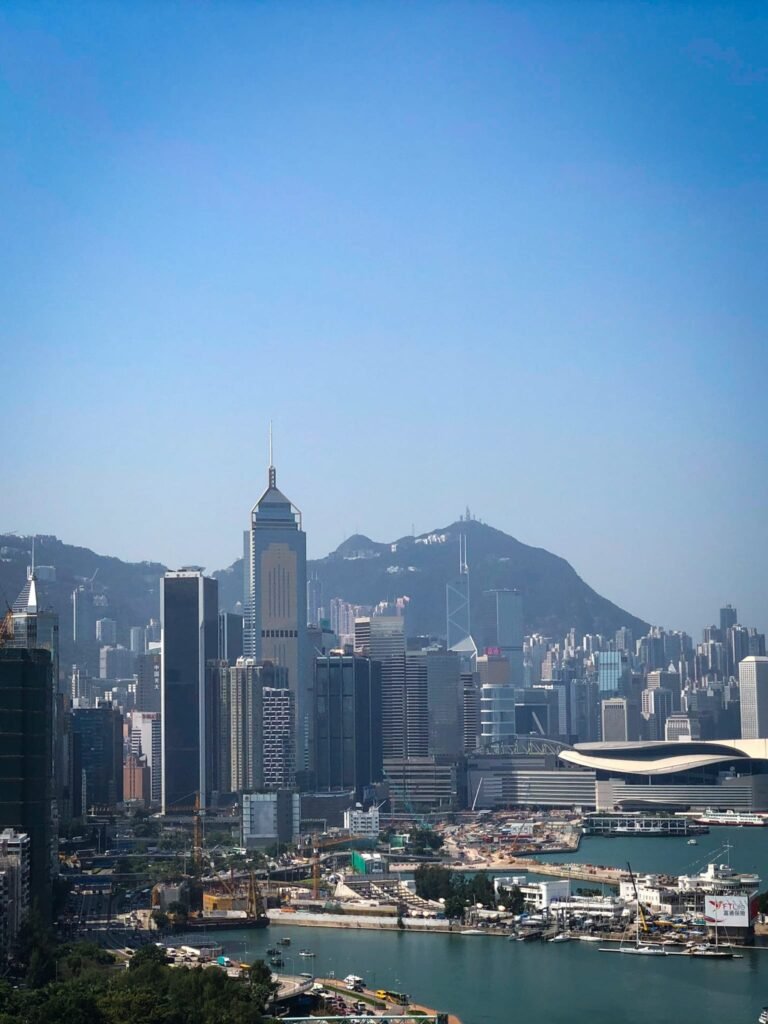
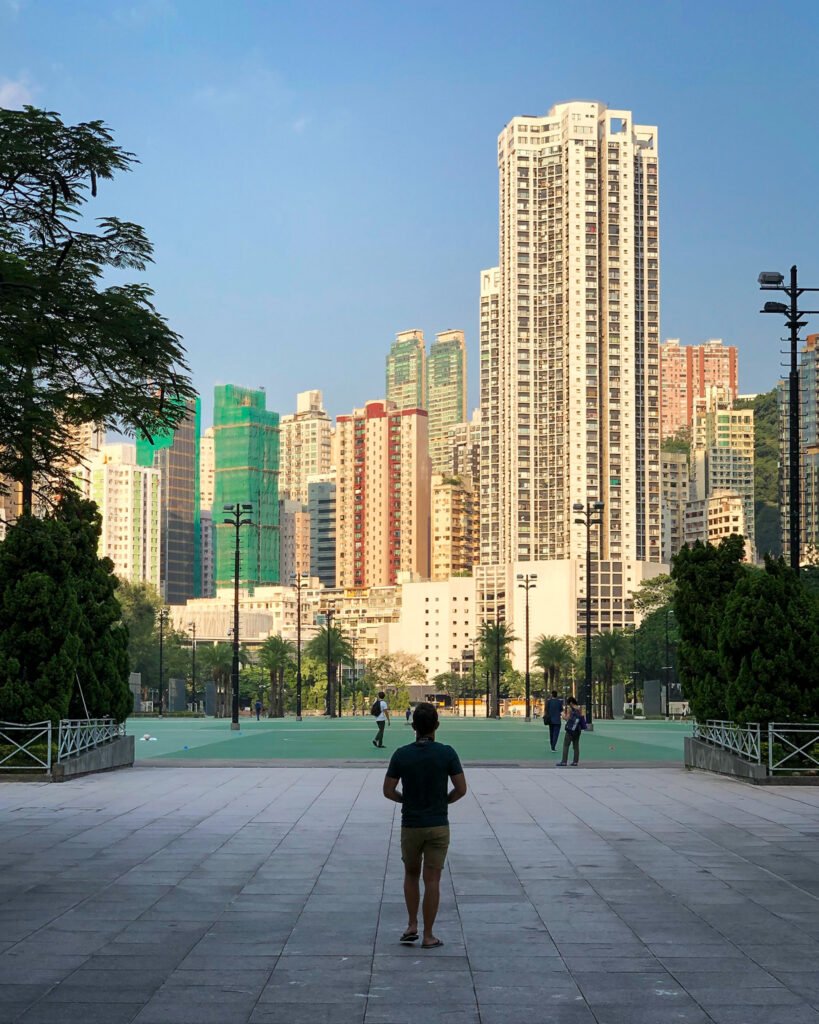
Causeway Bay is one of the most vibrant neighborhoods to stay in Hong Kong, packed with malls, street shops, and restaurants. If you love energy and want to be close to everything, this is a great choice.
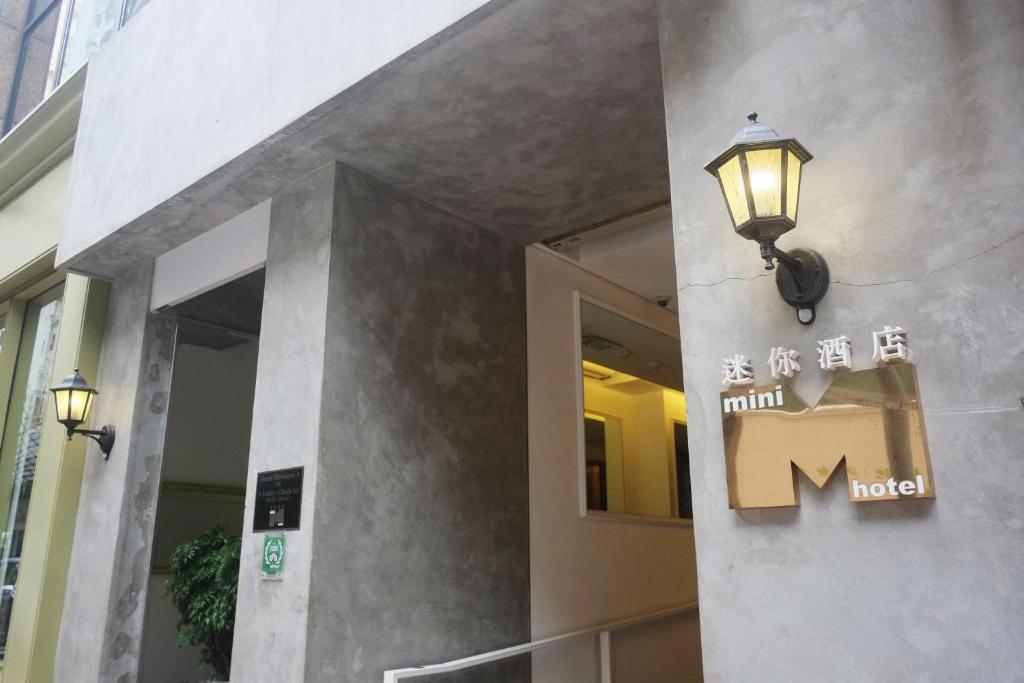
Mini Hotel Causeway Bay

Hotel Purple Hong Kong
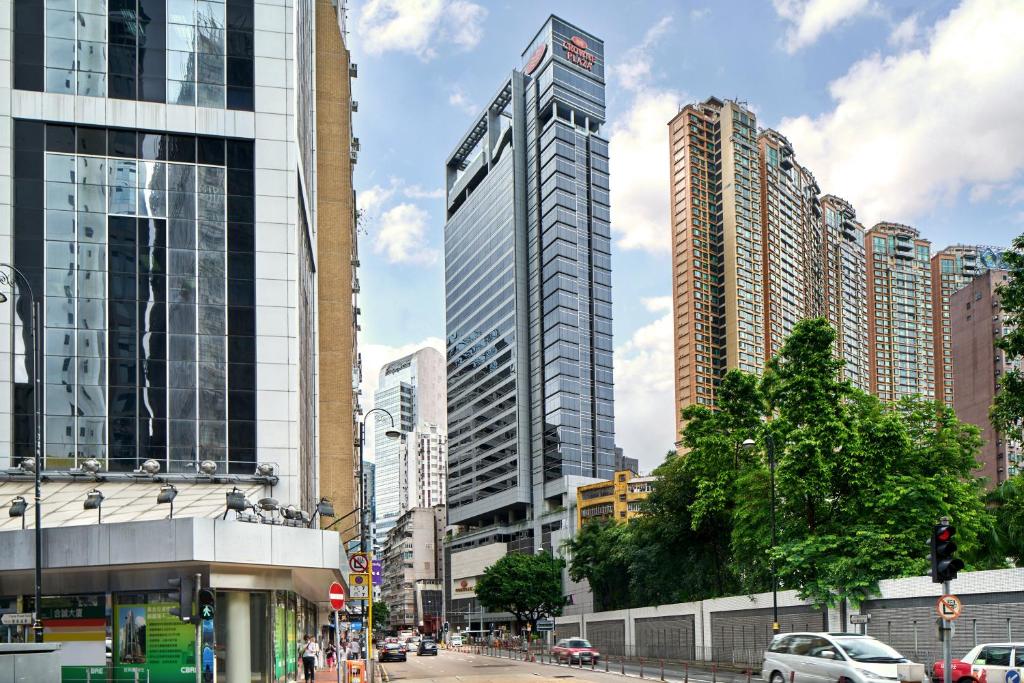
Crowne Plaza Hong Kong Causeway Bay
- Budget: Mini Hotel Causeway Bay – Small but stylish rooms in a prime location. Ideal for saving without sacrificing comfort.
- Mid-Range: Hotel Purple Hong Kong – We stayed here in 2019 and loved it! Modern, comfy rooms in a lively area.
- Luxury: Crowne Plaza Hong Kong Causeway Bay – Elegant hotel with a rooftop pool and stunning views of Happy Valley Racecourse.
Mong Kok: The Chaotic Charm of Street Markets
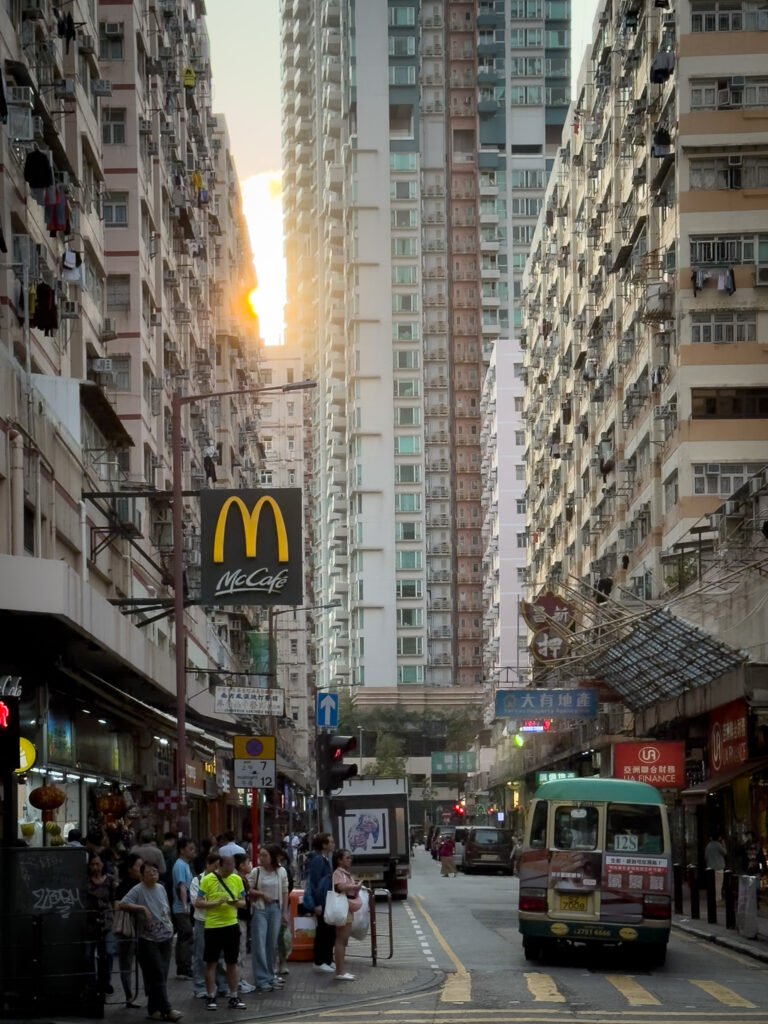
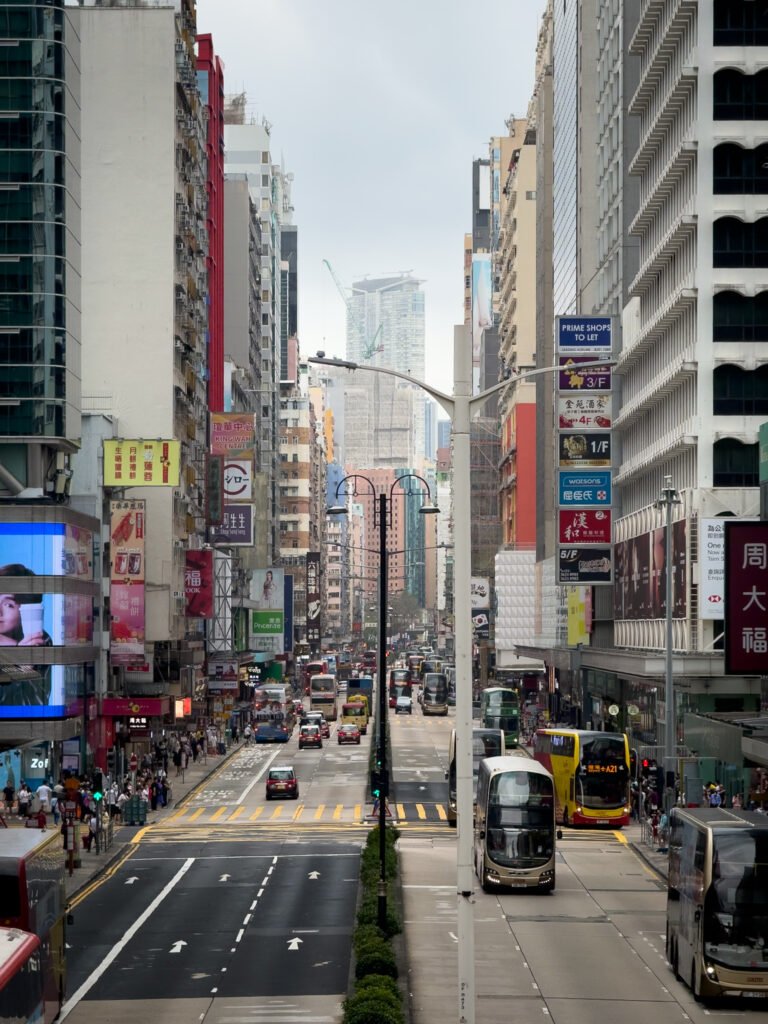
Mong Kok is a paradise for market lovers, from electronics to street food. It’s also one of the most densely populated areas in the world—expect crowded streets and nonstop energy! A great choice for an authentic Hong Kong experience.
- Budget: The BEACON – Compact but modern rooms, steps from the famous Ladies Market.
- Mid-Range: Dorsett Mongkok – We stayed here in 2025! Comfortable and well-located, with free shuttles to key areas.
- Luxury: Cordis, Hong Kong – A 5-star hotel connected to Langham Place Mall, with a rooftop pool and spa.
Tsim Sha Tsui: The Best Views of Victoria Harbour
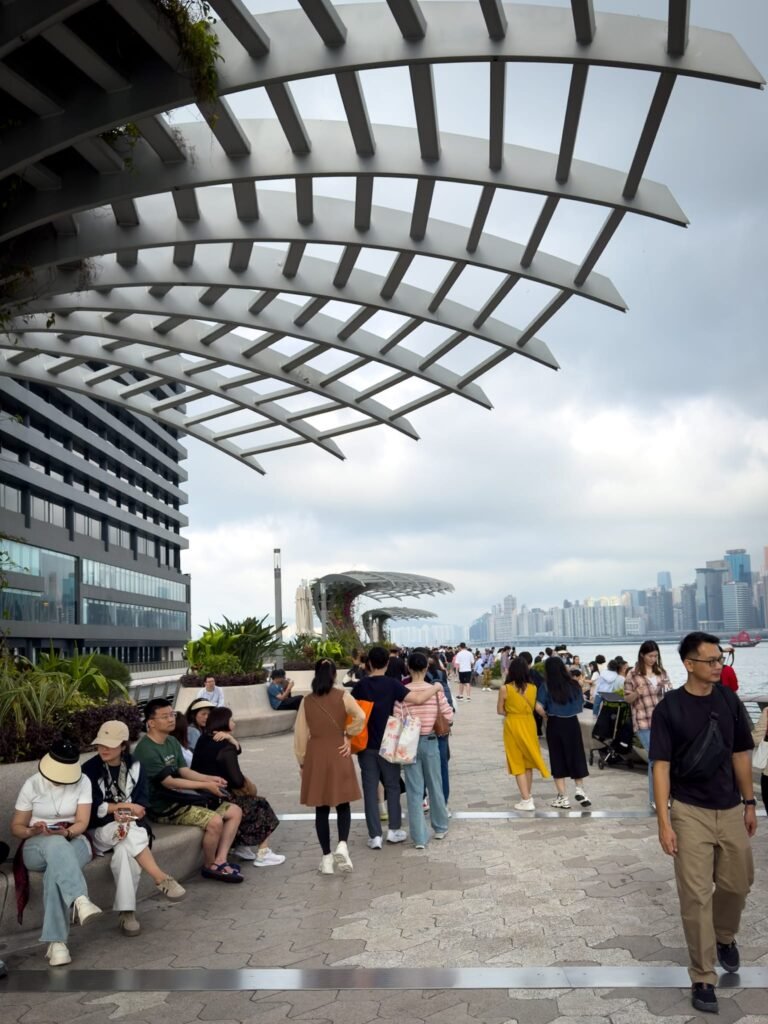
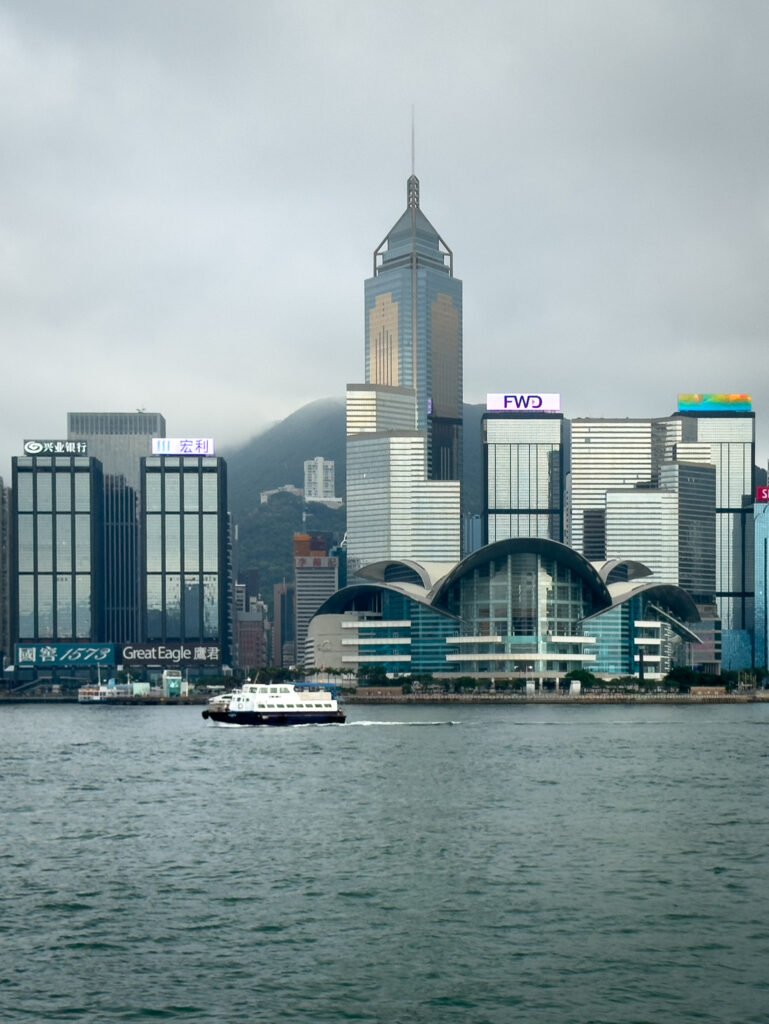
Tsim Sha Tsui (or TST, as locals call it) is one of the best areas where to stay in Hong Kong for exploring. It’s home to museums, amazing restaurants, and the iconic Avenue of Stars with its skyline views.
- Budget: The OTTO Hotel – A small boutique hotel in a prime TST location.
- Mid-Range: The Luxe Manor – A quirky hotel inspired by Salvador Dalí’s surrealism.
- Luxury: The Peninsula Hong Kong – An iconic luxury hotel with impeccable service and legendary afternoon tea.
Less-Obvious Tips for an Amazing Hong Kong Trip
Now that you know where to stay in Hong Kong, here are some tips to make your trip even better:
- Use a Holafly eSIM – Land with instant internet access at the airport—no physical SIM needed. Holafly is hassle-free!
- Heymondo Travel Insurance – Covers medical emergencies or flight cancellations—all manageable via their app. Heymondo makes it easy.
- Octopus Card: Your All-in-One Pass – Use it on trains, buses, convenience stores, and even restaurants. Though in 2025, we found credit cards widely accepted.
- Venture Beyond the Obvious – Skip the crowds at Victoria Peak and explore Sham Shui Po for a local vibe.
- Eat at Food Courts – Hidden gems in malls serve authentic local food at lower prices than touristy spots.
- Avoid Rush-Hour Metro – Hong Kong’s public transport can be a survival test during peak times.
- Download Helpful Apps – “MTR Mobile” for metro navigation and “OpenRice” (Hong Kong’s Yelp for food).
Hong Kong is a city of contrasts and endless fascination. Plan wisely, and you’ll love every second.


